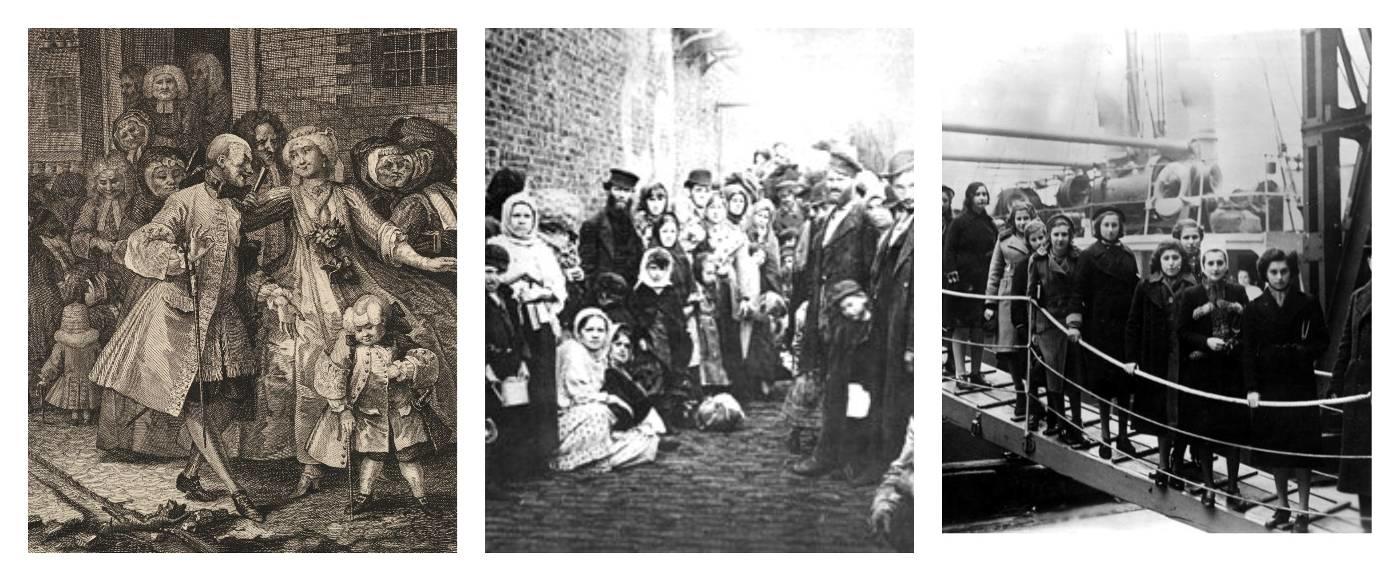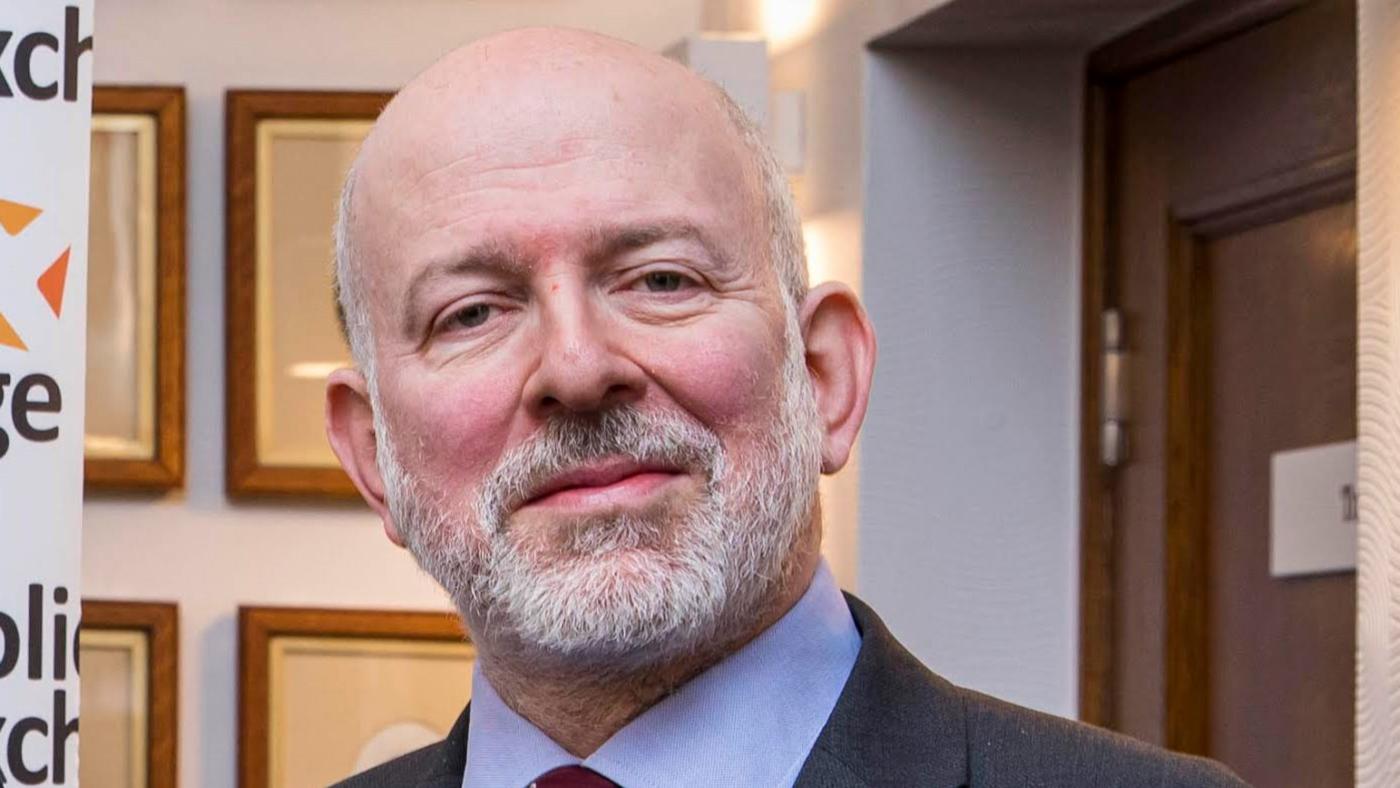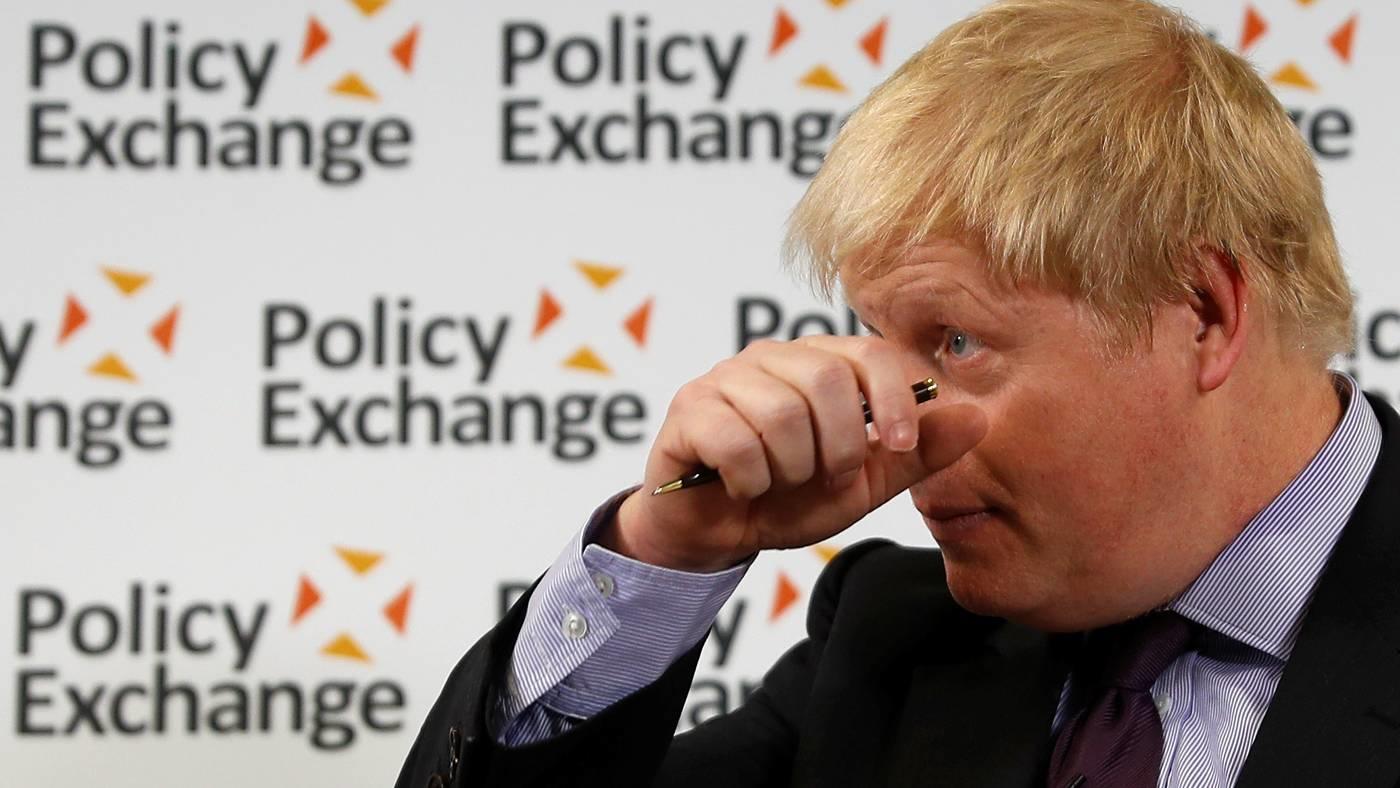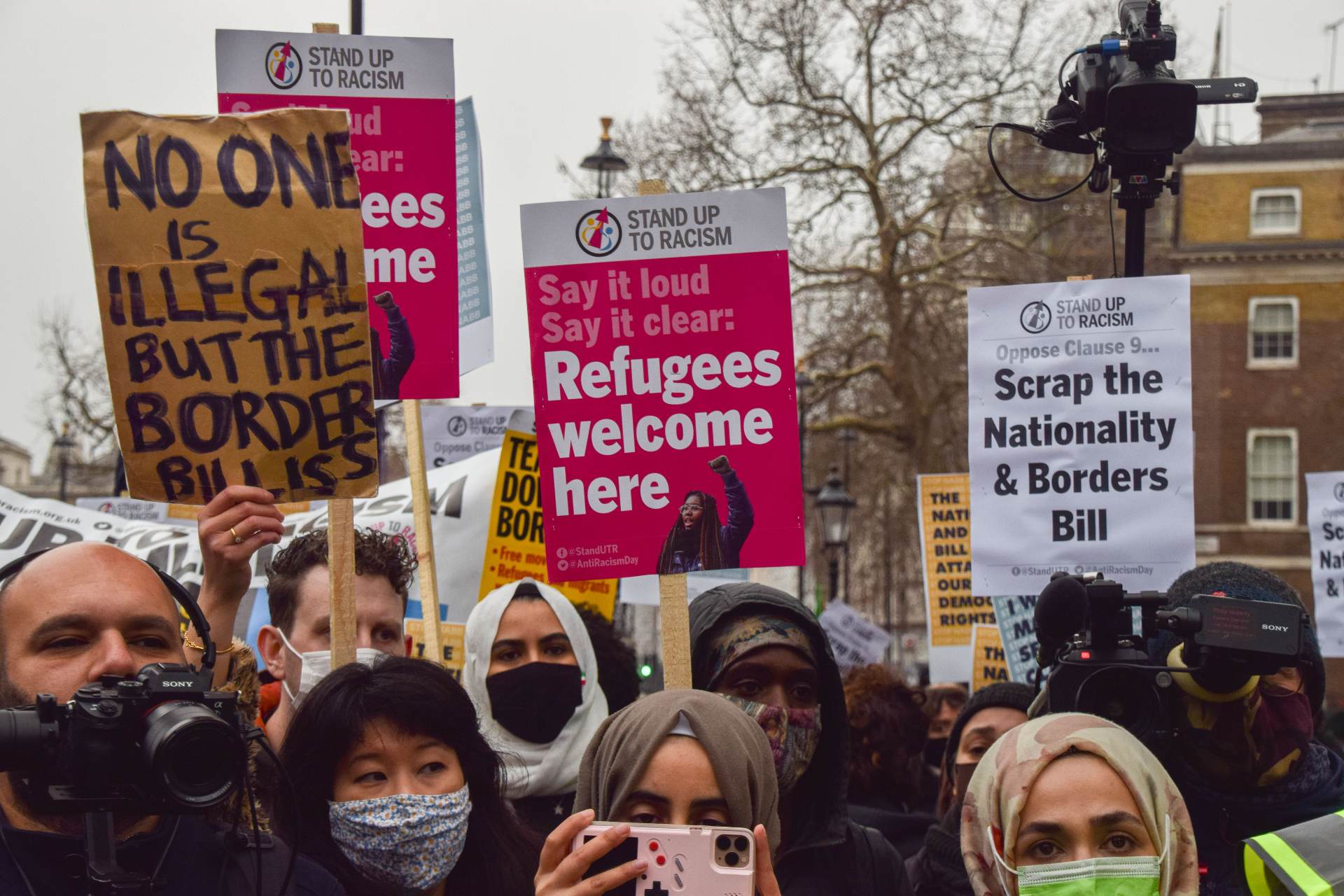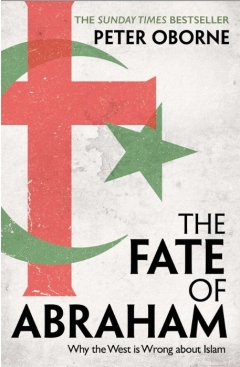In the wake of the calamity of the Iraq invasion of 2003, one might have supposed that the ideology which lay behind Tony Blair and George W Bush’s bloody misadventure would have been discredited. This has not happened. Neo-conservatism has continued to set the parameters for a great deal of policy discourse, and its supporters have continued to occupy many of the most prominent positions in British (and American) public life.
There are a number of reasons for this resilience. In the UK, Policy Exchange, a London-based think tank, is one organisation which kept the neo-conservative flame burning. Though its public profile is small, it has exerted prodigious influence in political circles. In conventional politics, Policy Exchange was at first associated in particular with ‘marketisation’, an ugly word which describes how the disciplines of the private sector have been introduced into the education system and the wider civil service. The think tank’s most enduring achievement, however, has probably been the reshaping of government policy towards British Muslims.
The British government, police and intelligence services originally saw their job as enforcing the law rather than policing ideology or personal beliefs
To simplify a rather complicated story, the British government, police and intelligence services originally saw their job as enforcing the law rather than policing ideology or personal beliefs. Abu Hamza, the notorious one-eyed cleric who made no secret of his sympathies with al-Qaeda, provides a fascinating illustration of this approach. Hamza, who used his position as imam of the Finsbury Park mosque to preach violent jihad, was skilful at ensuring that his public pronouncements stayed just within the law. There was general amazement and surprise when his eviction was suddenly brought about not apparently by the British state, but by his own congregation, who locked the doors of the mosque against him. The Metropolitan Police were, however, involved in Abu Hamza’s downfall. Its policemen built up close relations with the mosque’s faithful and were unobtrusively stationed nearby on the day of the imam’s eviction in case of trouble. This sensitive operation was a model of old-fashioned intelligence work and community policing.
However, the Muslim congregation who threw out Abu Hamza themselves held views which many sections of British society would find offensive. The congregation included sympathisers with Hamas, the Palestinian resistance group. Probably without exception, they were hostile to the invasions of Afghanistan and Iraq, and were dismayed by the Israeli occupation of the West Bank and Gaza. Many worshippers at the mosque held socially conservative views about homosexuality and women which, while by no means unknown among the Conservative Party membership, are no longer mainstream opinions in the modern UK. None of these views bothered the Metropolitan Police. They were happy to work with the Muslim community for the removal of a figure who they rightly saw as a menace.
This kind of ‘multicultural’ approach lay at the heart of what was then the British way. As long as they obeyed the law, immigrants were allowed to bring with them the traditions and customs of the countries they had left behind. This approach fitted in naturally with the national tradition of letting in dissidents and exiles from abroad, from the Huguenots expelled from France in the seventeenth century to the Jews who made their way to the UK as refugees from the Russian pogroms before the First World War, or later as refugees from National Socialism.
Policy Exchange dismantled the British approach of tolerance. Its analysts naturally agreed that the police should counter violence. But they disagreed profoundly with any tolerance of the ideas which (so they maintained) might become gateways to this violence. Policy Exchange’s connections were second to none. It was set up in 2002, in the wake of heavy Conservative Party defeats in the 1997 and 2001 general elections, by a group of Conservatives who feared their party was destined to perpetual opposition. These were the self-proclaimed Tory ‘modernisers’. They greatly admired Blair and had supported the Iraq War. These modernisers believed that their mission was to help the Conservatives copy Blair’s achievements in making the Labour Party electorally successful. Michael Gove, at the time of writing a senior member of the Boris Johnson government, was the first chairman of Policy Exchange.
When David Cameron ran for the Tory leadership after the 2005 general election defeat, he looked to Policy Exchange for ideas. The organisation – defined by the Evening Standard as “the intellectual boot camp of the Tory modernisers” – helped shape his thinking. At its heart, Policy Exchange spoke of a political philosophy which appeals almost as deeply to the Blairite or Starmer wing of the Labour Party as it does to David Cameron or Boris Johnson’s Conservatives. Better than any comparable organisation, it has come to articulate what was rapidly becoming the philosophy of the British governing class in the 21st century.
Policy Exchange and British Muslims
When the think tank was founded, it contained a ‘Foreign Policy and Security Unit’. As far as can be ascertained, its publications focused on foreign policy, but displayed no interest in domestic ‘extremism’. This changed with the arrival of Dean Godson with the title of research director of international affairs in 2005. Godson, who had worked as chief leader writer for the Daily Telegraph, appeared to interpret his international brief as a mandate to generate domestic policy towards British Muslims. This should never cause surprise: the political right in the UK has a habit of discussing British Muslims as if they were a foreign policy issue.
Godson came from a family with a tradition of interest in Cold War intelligence work, propaganda and covert action. His father Joseph Godson was Labour attache at the United States embassy in London in the 1950s and used his influence to promote the interest of the pro-US wing of the Labour Party.
From 2005 onwards, Godson seems to have been on a mission to rip up the counter-terrorism strategy adopted by successive British governments. He promoted the new approach to Muslims through research papers, seminars and, not least, media muscle. In particular, he argued that methods used by the British state against terrorism – above all against the IRA during the Troubles – were no longer relevant. In Ireland, British ministers were happy to work with Catholic communities in order to isolate the gunmen and bring about reconciliation.
Confronted with the threat of terrorism in the aftermath of the 9/11 attack on the Twin Towers, the first instinct of the British state was to copy the Irish experience. The police identified leaders who they felt they could trust with links into local communities. They sought to draw these figures into British politics, inviting them on to public platforms and making public funds available. In this way, they hoped to single out and segregate those individuals with an inclination to violence while gaining intelligence about their activities.
Policy Exchange argued that this strategy was wrong because, so it claimed, the British government was not merely confronting terrorists. Something much bigger was afoot: a confrontation of ideologies. For Policy Exchange, the UK was one of a band of free states, led by the US, that were engaged in a mortal battle against a set of deadly foes dedicated to a project to destroy Western civilisation. These foes were called ‘Islamists’ and they subscribed to a murderous ideology called Islamism. Policy Exchange acknowledged that not every Islamist was violent. However, over the long term that was irrelevant: Islamism had to be fought and ultimately it had to be defeated.
Islamism, said Policy Exchange, is a worldview which teaches its adherents that Islam is a comprehensive political ideology and must be treated as such. According to Policy Exchange, the Islamist outlook is one that essentially divides the world into two distinct spheres: ‘Muslim’ and ‘the rest’.
There could therefore be no negotiation. Islamists could never accept democracy, the rule of law, political institutions or the nation state. There was therefore no point in bringing Muslims into politics unless they renounced Islamism, in which case they could be welcomed.
According to Policy Exchange’s analysis, the core aim of counter-terrorism policy was no longer just protecting British citizens against violence. It was also the assertion of what Policy Exchange claimed to be Western values against so-called Muslim ‘extremism’. This grand battle of ideas demanded a return to the strategy of counter-subversion employed against the Soviet Union during the Cold War. My close reading of Policy Exchange publications has led me to conclude that Godson was, in essence, arguing that British Islamists should be isolated, never embraced and treated as suspect.
Twenty years ago I would attend the Telegraph leader conference. Godson, as chief leader writer, held court. He was a good mimic, an art he used to mock or denigrate political opponents or, if feeling cheerful, merely to entertain. He welcomed acolytes, but I took the liberty of challenging Godson. That evening I received a message through a mutual friend, who had arranged a dinner so that we could get to know each other better, that Godson was offended and no longer wanted to come across me socially. He was as good as his word.
A survey of his work at Policy Exchange suggests Godson had three objectives. First, he sought to weaken – or, better still, wreck – the alliance between the British left and British Muslim organisations. This he did by portraying Islamism as an outlandish far-right movement, with features in common with fascism. Secondly, Policy Exchange sought to challenge multiculturalism both as an idea and, more especially, as a basis for government policy. Above all, Godson was determined to break the link between so-called Islamist movements and the British state.
Godson was successful in all these objectives. His excellent Whitehall and Westminster connections may well have helped. These connections endure. Policy Exchange can whistle up a Cabinet minister for an event, an op-ed in a newspaper or access to Downing Street, while its authors are sought as experts on Islam on radio and television. The organisation’s reports tell the Conservative Party exactly what its leaders want to hear. At least six special advisers in the Boris Johnson government previously worked for Policy Exchange.
Godson’s first publication for Policy Exchange targeted British government collaboration with what was coming to be termed ‘radical Islam’. The author, Martin Bright, was a left-leaning journalist and then political editor of the New Statesman. This in itself sent out the important message that Policy Exchange worked with both political persuasions. Bright’s analysis was based on leaked material, courtesy of a Foreign Office source alarmed at the government’s relationship with Muslim organisations both in the UK and overseas. “It depresses me deeply,” wrote Bright, “that a Labour government has been prepared to rush so easily into the arms of the representatives of a reactionary, authoritarian brand of Islam, rather than look to real grassroots moderates as allies.”
Bright’s document took aim at two targets: the Muslim Brotherhood and the Muslim Council of Britain. Policy Exchange (and Bright) present the Muslim Brotherhood as an Islamist movement guilty of propagating a dangerous ideology at odds with the West. As for the Muslim Council of Britain, that was condemned as guilty of being Islamist too. Bright’s document was an important blow in a campaign which would eventually lead to the severing of relations between the British government and the MCB. Policy Exchange can claim a large part of the credit.
Godson was an acute talent-spotter. Munira Mirza wrote his second publication and later worked with Boris Johnson when he was mayor of London, before moving to the crucial role of head of the Downing Street policy unit. Mirza demanded an end to “institutional attacks on Britain and its culture”, arguing that “the preoccupation with Muslim vulnerability and Islamophobia has skewered our understanding of why such problems exist, and in many ways, has made things worse for Muslims.” Mirza asserted that this reflected a “victim mentality” which was “given social credence by institutions, politicians, the media and lobby groups”. Her report also claimed Islamophobia has been ‘exaggerated’ by some British Muslims. Policy Exchange has a long history of questioning the idea of Islamophobia and has a record of recruiting members of minority groups to do the questioning.
The invention of non-violent extremism
In 2009, Policy Exchange published a report which explicitly presented the demand for the British state to apply to British Muslims the same counter-subversion regime used against trade unionists, socialists and others during the Cold War. This well-written and powerful polemic probably represents – more explicitly than any other Policy Exchange publication – the full Godson agenda. It was written by two Cambridge scholars. Martyn Frampton was a fellow of Peterhouse, the high Tory Cambridge college. His co-author Shiraz Maher was a former member of Hizb ut- Tahrir, having worked for the organisation as a regional officer in the north- east of England.
Frampton and Maher’s report called for the government to reinstate the 1989 Security Service Act, which would give MI5 the power to investigate subversion. As far as the British government was concerned, this involved a giant conceptual leap. The ‘Preventing Violent Extremism’ initiative was rebranded as, simply, ‘Preventing Extremism’.
This was also a profound change of policy because it implied that the state should target not just violence but opinion as well. It criticised the government for “stressing law enforcement and strict security concerns over and above everything else’” Instead, it should deal with “non- violent radicals” who were “indoctrinating young people with an ideology of hostility to Western values”.
In other words, Policy Exchange wanted to create a new relationship between the British state and Muslims. This project meant creating a different kind of British citizenship. It led to a new concept in British public discourse: non-violent extremism. Policy Exchange was urging that Muslims should be obliged to sign up to a set of beliefs that fell within a state prescribed remit. In order to become British, Muslims were being asked to deny, or at least modify, their own identity and heritage. Until that moment, British citizens had generally been allowed to think and conduct themselves as they wanted, as long as they stayed within the law. The invention of the concept of non- violent extremism meant citizens could now be harassed, put on secret lists or barred from public life for offences which they often did not even know they had committed. It lies at the heart of the Prevent doctrine.
Prevent was used to fund organisations that would promote the government line on terrorism and extremism. But there was another component to the programme, which the Cameron government adapted to target “non-violent extremism” rather than just violent extremism. In 2015, Prevent became a legal duty for public sector institutions – including hospitals, schools, and universities. Under Prevent, public sector workers were and are (at the time of writing) expected to report anyone they suspect of extremism to the programme.
Extremism, according to the government, constitutes “vocal or active opposition to British values”. This means that people whose views may be mainstream or illiberal, but certainly not illegal, can be targeted as a threat to British society.
In a school context, Prevent demands that any teacher who suspects a pupil of having been radicalised must report them to the programme. The policy has failed at the crucial test of effectiveness. From April 2020 to March 2021, 86 per cent of referrals to the programme were false positives – representing people who were wrongly referred. Prevent only occasionally catches the people that it wants to. Even these individuals, however, have never committed a crime. There is, moreover, no evidence that they will ever commit a crime in the future, or that they would have committed a crime were it not for being identified by Prevent. Government statistics, meanwhile, do not illuminate the full picture: there are thousands of cases within schools, universities and hospitals where innocent people, often children, are needlessly interrogated and harassed over suspected extremism. Their cases are dismissed before being officially referred to Prevent and are left out of the official statistics.
Muslims are disproportionately affected by the policy, which relies on profiling. Over 70 per cent of Muslims in England and Wales live in ‘Prevent Priority Areas’ (PPAs), compared with just over 30 per cent of the general population. By requiring public sector workers to report people they find suspicious, moreover, Prevent effectively compels them to act on their prejudices and makes Muslims subject to majoritarian biases.
The development of the concept of extremism, pushed by think tanks like Policy Exchange, has had a material impact on the lives of ordinary British Muslims, pressuring them to assimilate by downplaying their distinctiveness from other Britons.
The idea of non-violent extremism thus brought with it a particular conception of national belonging: if foreigners wanted to become British, why shouldn’t they be like Britons? But this wasn’t a British logic. This country has always had a generous and capacious identity. You can be British at the same time as being Welsh, Jamaican, Cornish, Black, Jewish, Hindu, Muslim or Scottish. The biggest problem is that nobody can be certain who is – or who is not – a non- violent extremist. That is why all attempts to establish a legally secure definition have so far failed.
Policy Exchange’s proposals have shifted the UK towards an American model of citizenship where new arrivals are expected to abandon old identities and join a common melting pot. Policy Exchange’s project to save Britishness was therefore also an attempt to destroy it. But Policy Exchange could not have won its argument without powerful allies, and the most important of these was the Conservative Party.
Photo: Police stand guard outside Regents Park Mosque, London in December 1998 (Reuters)
The Fate of Abraham: Why the West is Wrong about Islam is published on 12 May by Simon & Schuster. Peter Oborne won best commentary/blogging at the Drum Online Media Awards in both 2022 and 2017 for articles he wrote for Middle East Eye. He was also named as British Press Awards Columnist of the Year in 2013. He resigned as chief political columnist of the Daily Telegraph in 2015. His latest book, The Assault on Truth: Boris Johnson, Donald Trump and the Emergence of a New Moral Barbarism, was published in February 2021 and was a Sunday Times Top Ten Bestseller. His previous books include The Triumph of the Political Class, The Rise of Political Lying, and Why the West is Wrong about Nuclear Iran.
Post Disclaimer
Disclaimer: How a neo-conservative think tank defined British Muslims by Peter Oborne - Views expressed by writers in this section are their own and do not necessarily reflect Latheefarook.com point-of-view
